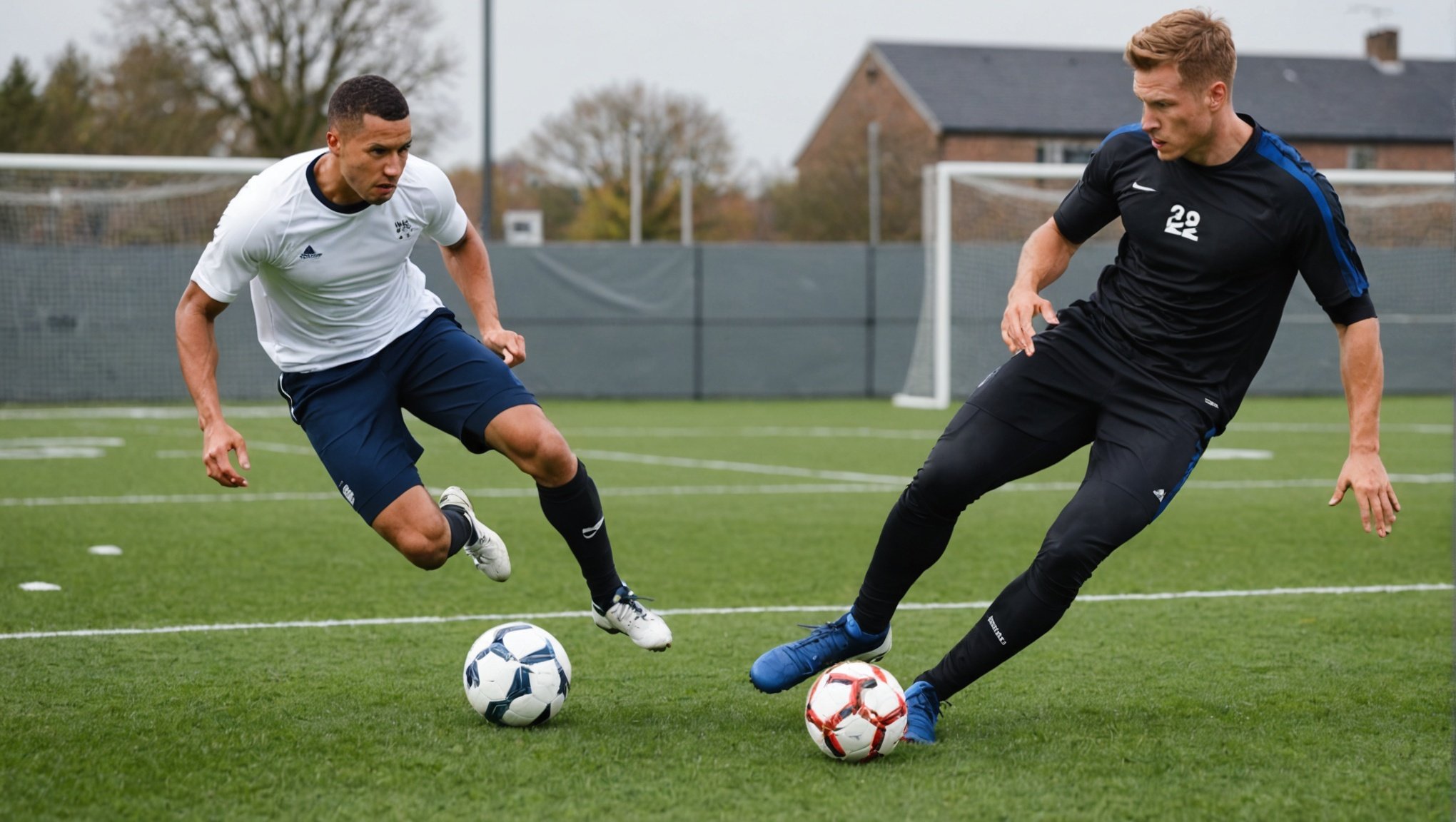Overview of Explosive Power in Football
Explosive power is a crucial asset in football performance, propelling athletes to excel. It refers to the ability to exert a maximum amount of force in the shortest possible time, a vital skill in a fast-paced football match. Athletic training emphasizes enhancing explosive power to improve sprinting, jumping, and rapid directional changes. These actions are essential for gaining an edge over opponents during critical game moments.
In football, explosive power substantially boosts overall performance. Players with superior explosive power can accelerate quickly, outpace defenders, and reach optimal positions on the field. This capacity not only enhances offensive plays but also bolsters defensive tactics. An athlete capable of exhibiting explosive power can turn the tides of a match by executing quick interceptions and powerful shots.
Additional reading : Essential Dietary Changes for Football Players Healing from Muscle Tears: A Comprehensive Guide
However, building explosive power is often misunderstood. A common misconception implies that it can be solely developed through heavy weightlifting. While strength training plays a role, athletic training should incorporate plyometric exercises, agility drills, and proper strength conditioning to cultivate genuine explosive power. Emphasizing a balanced training regimen ensures athletes achieve the dynamic prowess needed for peak football performance.
No-Gym Exercises for Explosive Power
Enhancing explosive power doesn’t necessitate a gym membership. Through structured bodyweight exercises, individuals can effectively engage in no-gym training routines to build strength and agility. Football athletes, in particular, can benefit significantly from these exercises tailored for power development.
Also read : Mastering Long-Range Passing in Football: Essential Training Techniques You Need to Know
Plyometric Exercises
Plyometrics are crucial for developing explosive power. They involve dynamic movements that enhance speed, power, and agility. Here are some effective plyometric exercises for football:
- Jump Squats: Boost leg strength and power.
- Box Jumps: Improve vertical leap and coordination.
- Broad Jumps: Enhance horizontal distance and force generation.
To perform these exercises, focus on rapid, controlled movements. Modify the exercises by adjusting intensity. For instance, increase the height of a box jump to amplify the challenge.
Agility Drills
Agility drills are indispensable for football athletes, enhancing speed, coordination, and power. Key agility drills include:
- Ladder Drills: Improve footwork and quickness.
- Cone Drills: Enhance directional changes.
- Shuttle Runs: Boost acceleration.
Integrate these drills into your routine by dedicating sessions to agile movements. Ensure variety and progression for maximum benefit.
Strength and Conditioning
Performing bodyweight strength exercises, such as push-ups or lunges, can significantly improve explosiveness without equipment. Resistance band workouts serve as an excellent alternative to weights, offering diverse tension levels to hone muscle growth. Integrating strength exercises in a no-gym routine ensures comprehensive conditioning, preparing athletes for dynamic movements on the field.
Performance Benefits of No-Gym Exercises
No-gym exercises bring athletic benefits that translate remarkably well to improved on-field performance. These exercises form the cornerstone of effective exercise routines that cater exceptionally to those involved in sports like football. With tailored routines focusing on football conditioning, athletes develop endurance and agility pivotal for excelling on the pitch.
One key advantage is injury prevention. Through enhanced strength and flexibility, athletes reduce the risk of common sports injuries. Activities emphasizing muscle resilience and joint mobility shield athletes from physical setbacks, ensuring consistent participation in their sport.
Integral to no-gym routines are functional movements, which play a crucial role in athletic training. These movements mimic real-life actions, focusing on whole-body coordination rather than isolating specific muscles. By doing so, athletes can improve their performance through movements that are directly applicable to their sport.
Overall, no-gym exercise routines provide practical athletic benefits without the need for expensive gym memberships or equipment. Athletes refine their skills, build resilience, and ensure a balanced approach to fitness, making these routines a valuable asset for any sports enthusiast.
Tips for Effective Training
Training effectively is crucial for athletes aiming to enhance their performance. With the right training tips and emphasis on exercise form, athletes can achieve their goals more efficiently.
Proper Form and Technique
Ensuring proper form is vital when engaging in explosive exercises. Good form maximises performance and reduces injury risk. Many athletes make the mistake of overextending or rushing movements, which can lead to poor outcomes or injuries. Correct these errors with resources like instructional videos or personal trainers who specialise in explosive exercises.
Creating a Balanced Routine
A well-structured weekly training plan incorporates no-gym exercises, ensuring variety and continual challenge. Aligning explosive workouts with adequate rest and recovery prevents burnout and encourages muscle repair. Additionally, modifying routines to fit various skill levels and individual goals is essential for sustained improvement. As athletes advance, progressively challenging workouts adapted to their capabilities is key.
Tracking Progress
Evaluating how explosive power improves involves specific measurement techniques. Set achievable goals for your training sessions and adjust them as progress is observed. Feedback from coaches or peers can enhance development, offering objective insights into performance growth. Assessing each workout session’s outcome and making necessary changes fosters continuous improvement.













